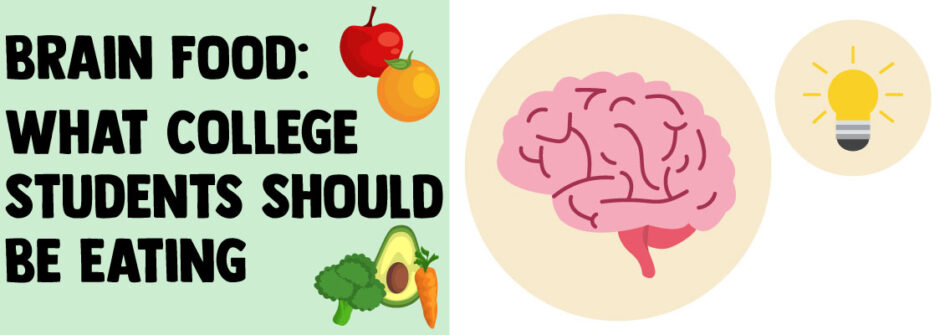We’re often told to eat healthy, but what does that really mean? With so many diets and fads floating around, it can be hard to know where to start. And even if we do follow a trend, results can be fleeting. So how can college students meet their health goals while fueling their brains for long study sessions? In honor of National Nutrition Month this March, I sat down with our campus dietitian, Summer, to get some answers for us all!
Fun Fact: Carbohydrates are the brain’s main source of energy! We’re often led to believe carbs are the enemy, but the truth is, it all depends on which carbs we’re eating. Instead of reaching for refined carbs, we should focus on whole grains, fruits, and veggies. Opt for whole grain rice, pasta, bread, oats, and quinoa—these are packed with the nutrients your brain needs, unlike white rice and regular pasta, which have lost many important nutrients during processing. For example, whole grains provide B vitamins, magnesium, potassium, and iron, which are all essential for brain function. Fiber is another important part of a brain-boosting diet. It helps you feel full longer and keeps your digestive system running smoothly. Fiber-rich foods include whole fruits, whole grains, beans, and seeds. And don’t forget about Omega-3 fatty acids! These healthy fats are fantastic for brain health, and you can find them in foods like fish, seeds, and nuts.
To keep your brain sharp, aim for three complete meals and three snacks each day. A complete meal includes carbs, protein, and healthy fats. And don’t skip breakfast! Without a solid breakfast, you’re less likely to retain information from your classes. Here are some complete snack ideas to keep you fueled throughout the day:
● Whole grain bread with nut or seed spread
● Greek yogurt with granola and fresh fruit
● Cheese, sausage, and crackers
● Veggies with hummus
● Apples with peanut butter
By eating balanced meals and snacks, you’ll avoid the dreaded blood sugar spikes and crashes that lead to fatigue and lack of motivation. While a candy bar might give you a quick sugar high, it won’t sustain you for long. Staying away from non-nutritive foods is key, especially since many of our favorite snacks are processed and lack the nutrients our bodies need. Of course, it’s okay to indulge every once in a while—but as students, being more mindful of the ingredients and nutritional value of what we eat will set us up for success, both academically and health-wise.
Meal prepping is a game-changer for busy students. Spend a few hours over the weekend planning your meals for the week. Focus on incorporating protein-rich foods like eggs, chicken, fish, or plant-based options. For carbs, load up on fruit and veggies, and give whole grain rice or pasta a try. Don’t forget to pack snacks for between classes! Staying hydrated is also super important. Depending on your age and gender, aim to drink around 70-100 oz of water a day.
Remember, the foods you eat affect both your body and mind. Fuel your body with the right nutrients, and your mind will thank you!
A huge thank you to Summer for being a wealth of knowledge, supporting my writing, and helping all of campus become more healthful! For even more information and creating your own health journey through food, you can request a dietitian meeting using this qualtrics form: https://uwwhitewater.co1.qualtrics.com/jfe/form/SV_3TQwdosdnO1k4WV

Leave a Reply